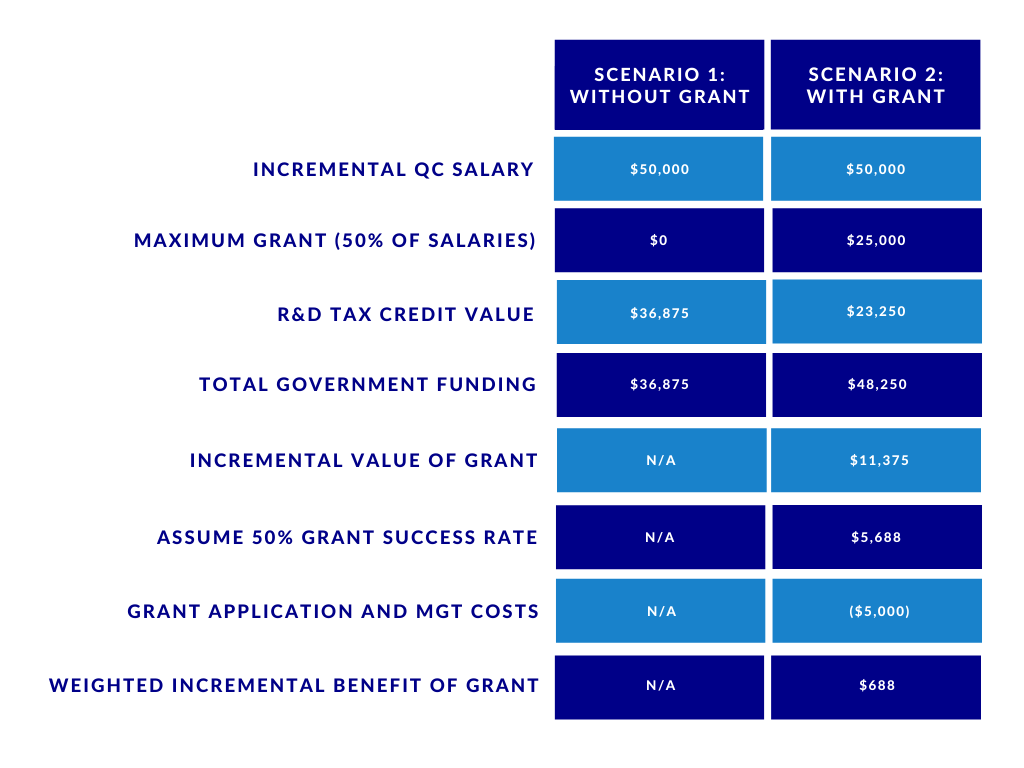Driving Digital Transformation: Funding for Canadian Businesses
In an age dominated by digital innovation, Canadian businesses recognize the transformative potential of embracing cutting-edge technologies. As technology evolves rapidly, companies must not only keep up with trends but also innovate to gain a competitive edge. However, the financial investment required can often be a significant hurdle. To address this challenge, we’ve curated a list of key funding programs available to Canadian businesses seeking to advance their digital capabilities. By leveraging these funding opportunities, businesses can not only overcome the financial hurdles of digitization but also position themselves as leaders in their fields.
Innovation, Science and Economic Development Canada (ISED)
ISED’S Canada Digital Adoption Program (CDAP) is a cornerstone for small and medium-sized Canadian-owned businesses looking to embark on their digital journey. Under the Boost Your Business stream, this program offers grants covering up to 90% of the cost to develop a comprehensive digital adoption plan, up to a maximum of $15,000; 0% interest loans from the Business Development Bank of Canada (BDC) for technology acquisition; and a wage subsidy to leverage the help of talented post-secondary students and recent graduates. The CDAP provides vital financial support for businesses seeking to integrate advanced technologies into their operations. Additionally, the Grow Your Business Online stream extends micro-grants to small businesses, supporting their transition towards comprehensive digital integration.
Investissement Québec
Investissement Québec’s Productivité Innovation initiative extends loans starting at $50,000 to help Quebec companies enhance their competitiveness and accelerate growth through innovation projects, which may involve a product, a process, commercialization efforts or organizational processes. This initiative supports the adoption of innovative technologies and processes such as automation, digitization, robotization and the use of artificial intelligence.
Investissement Québec also funding for technological advancement through the ESSOR program. Component 1 offers up to $100,000 in grant money for Feasibility Studies and Digital Diagnosis. Component 2 offers loans and loan guarantees to support an innovative technological transition or the acquisition of new technologies. Finally, Component 3 offers loans and loan guarantees for the acquisition or implementation of clean technologies.
Développement économique de l’agglomération de Longueuil (DEL)
The Call for Projects in Digital Transformation 5.0 seeks to assist organizations in their industrial transformation towards Industry 5.0. Eligible projects must be related to either an already implemented technology or involve the implementation of a new technology. Additionally, they must impact at least one of the three other aspects of Industry 5.0: human, resilience, or environment. Funding up to $20,000 is available.
Ontario BIA Association & Digital Main Street
The Digital Transformation Grant (DTG) program from Digital Main Street helps small businesses in Ontario adopt new technologies. The grants, up to $2,500, offer support for training, advisory support, and the digitization of brick-and-mortar small businesses.
Alberta Innovates
Alberta Innovates’ Alberta Digital Traction offers grants of up to $50,000 to Alberta businesses looking to incorporate cutting-edge technologies into their operations. It targets candidates who are in the process of validating their product or service in the market and are aiming to scale their digital technology in the next few years.
Northwest Territories Business Development and Investment Corporation
The Accelerate Digital Adoption Projects for Tomorrow (ADAPT) Fund, available in the Northwest Territories (NWT), offers up to $2,600 in funding for digitization projects and can supplement the CDAP, up to a combined value of $5,000. Eligible NWT businesses can receive funding for the development of a new e-commerce website, the improvement of an existing one, digital marketing, hardware/software costs, and more.
National Research Council (NRC)
The NRC’s Construction Sector Digitalization and Productivity Challenge Program is a unique initiative aimed at driving innovation through digitalization in the construction sector. This program recognizes the potential of technology in improving productivity and contributes to the emerging low-carbon economy, offering crucial financial support to businesses looking to make this transition.
Final Thoughts
These funding programs serve as catalysts for Canadian businesses seeking to advance their digital capabilities. By leveraging these opportunities, companies can embrace a broader spectrum of cutting-edge technologies and position themselves for growth and competitiveness. It is imperative for businesses to carefully review the specific eligibility criteria and benefits provided by each program to make informed decisions tailored to their unique digital transformation needs and goals.
Need support applying for funding?
If you have questions about any of the above programs or are considering submitting an application, don’t hesitate to contact R&D Partners at 1-800-500-7733 for more information or to schedule a meeting with one of our funding experts.

